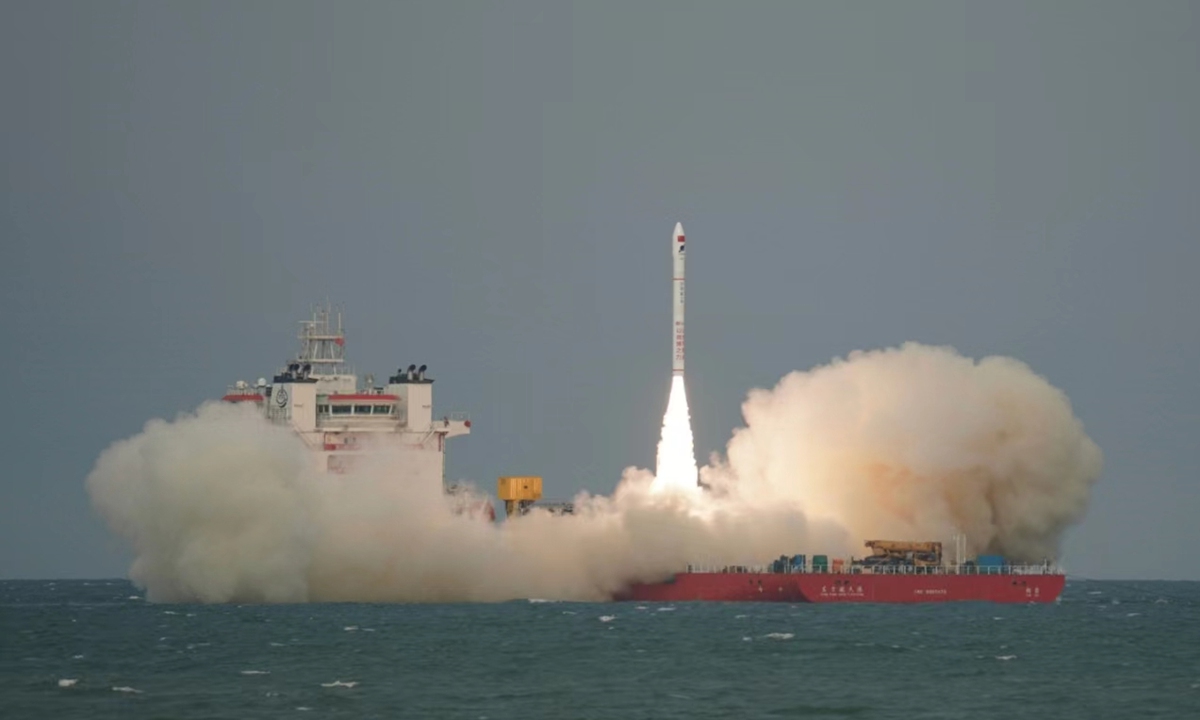
China's Ceres-1 solid rocket successfully conducts a second sea launch on May 29, 2024. Photo: courtesy of Galactic Energy
China's Ministry of Industry and Information Technology (MIIT) announced on Thursday the granting of a license for space radio business via satellite constellation to Beijing-based commercial aerospace firm Guodian Gaoke, after it sent four satellites into orbit on Wednesday. The move will further support the nation's commercial aerospace development.
The four satellites are part of Guodian Gaoke's low earth orbit (LEO) Internet-of-things (IoT) satellite constellation Tianqi, which is being used to explore satellite IoT applications in areas such as transport, environmental protection, natural disaster detection and tourism, according to the MIIT.
The MIIT issued the license after completing frequency coordination work, and provided radio frequency and orbital resources support for Guodian Gaoke in building its LEO IoT technology test system. The MIIT also said it will further optimize the use of satellite radio frequencies and orbit resources, in order to boost the development of China's satellite IoT ecosystem.
The launch was overseen by Chinese aerospace company Galactic Energy from the sea near East China's Shandong Province on Wednesday,
successfully sending four Tianqi satellites into orbit.
The launch was the company's second sea launch, following the first in September last year, and was completed by its self-developed Ceres-1S Y2 carrier rocket, a sea-launch version of the company's mature rocket model, the Ceres-1, according to a statement from the company.
Following the rapid digital transformation of major industries, China's commercial aerospace sector is set to embrace emerging growth opportunities.
The Global Navigation Satellite System (GNSS) and Location Based Services (LBS) Association of China
issued a white paper on May 18 on the development of China's satellite navigation and positioning service industry, which stated that the total output value of the industry reached 536.2 billion yuan ($74.23 billion) in 2023, up by 7.09 percent year-on-year.
After the successful launch on Wednesday, another commercial launch by Galactic Energy will take place on Friday at Jiuquan Satellite Launch Center in Northwest China's Gansu Province, taking five satellites into orbit, the company told the Global Times on Thursday. It shows the increasing demand in China for satellite launches, the company said.
Chinese commercial aerospace company LandSpace is also preparing for a flight test in June for its vertical take-off and landing (VTVL) rocket, the company said. The maximum altitude of the test is 10 kilometers, and it will further verify the company's VTVL technologies for reusable rockets.




